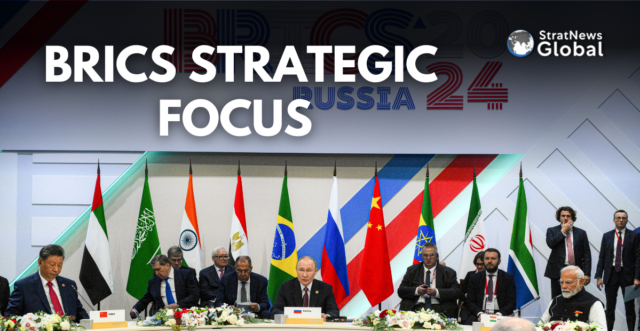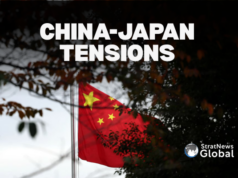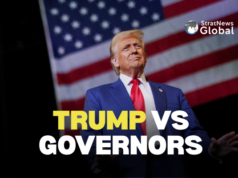At the BRICS summit in Kazan, Russian President Vladimir Putin held discussions with Chinese President Xi Jinping, Indian Prime Minister Narendra Modi, and other leaders about the ongoing war in Ukraine. The summit aimed to showcase that Western efforts to isolate Russia have failed, as Putin seeks to solidify alliances with major emerging economies.
BRICS: A Growing Global Influence
BRICS, originally a term coined by Goldman Sachs in 2001 to describe the economic potential of Brazil, Russia, India, and China, now represents 45% of the world’s population and 35% of the global economy. Over time, the group expanded to include South Africa, and more recently, countries like Egypt, Ethiopia, Iran, and the United Arab Emirates have joined, with Saudi Arabia also expressing interest. However, there are growing concerns within BRICS about how the group can maintain its geopolitical purpose and achieve real economic results while expanding rapidly.
Putin opened the summit by addressing the interest of over 30 countries in joining BRICS, emphasising the need for balance to ensure the group’s effectiveness. He acknowledged the importance of engaging the Global South and East but warned against diminishing BRICS’ strategic focus.
BRICS’ Response to the Ukraine Conflict
The war in Ukraine remains a contentious issue at the summit. Modi publicly expressed his desire for peace in Ukraine, while Xi discussed the conflict with Putin privately. Russia currently controls about one-fifth of Ukraine, including Crimea and parts of eastern Ukraine, following its invasion in 2022. Putin has maintained that the annexed regions will not be negotiated away and that Moscow’s security concerns must be addressed.
Proposals from China and Brazil for ending the conflict, which have garnered some support from developing nations, are likely to be mentioned in the final BRICS communique. However, Ukraine has criticised these proposals, viewing them as being too favourable to Moscow. While both Ukraine and Russia have made proposals to end the war, their positions remain far apart, complicating peace efforts.
Economic Ties and Oil Trade
BRICS plays a crucial role in Russia’s economy, with China and India purchasing around 90% of Russia’s oil, its largest foreign currency source. Russia is the world’s second-largest oil exporter, and its economic ties with BRICS nations have deepened as Western sanctions have increased.
The summit’s focus on global economic cooperation and conflict resolution comes as world finance leaders gather in Washington, facing challenges such as the Ukraine and Middle East conflicts, China’s faltering economy, and concerns over potential trade disputes sparked by the upcoming US presidential election.
(With Inputs from Reuters)
Research Associate at StratNewsGlobal, A keen observer of #China and Foreign Affairs. Writer, Weibo Trends, Analyst.
Twitter: @resham_sng





